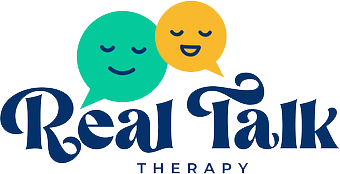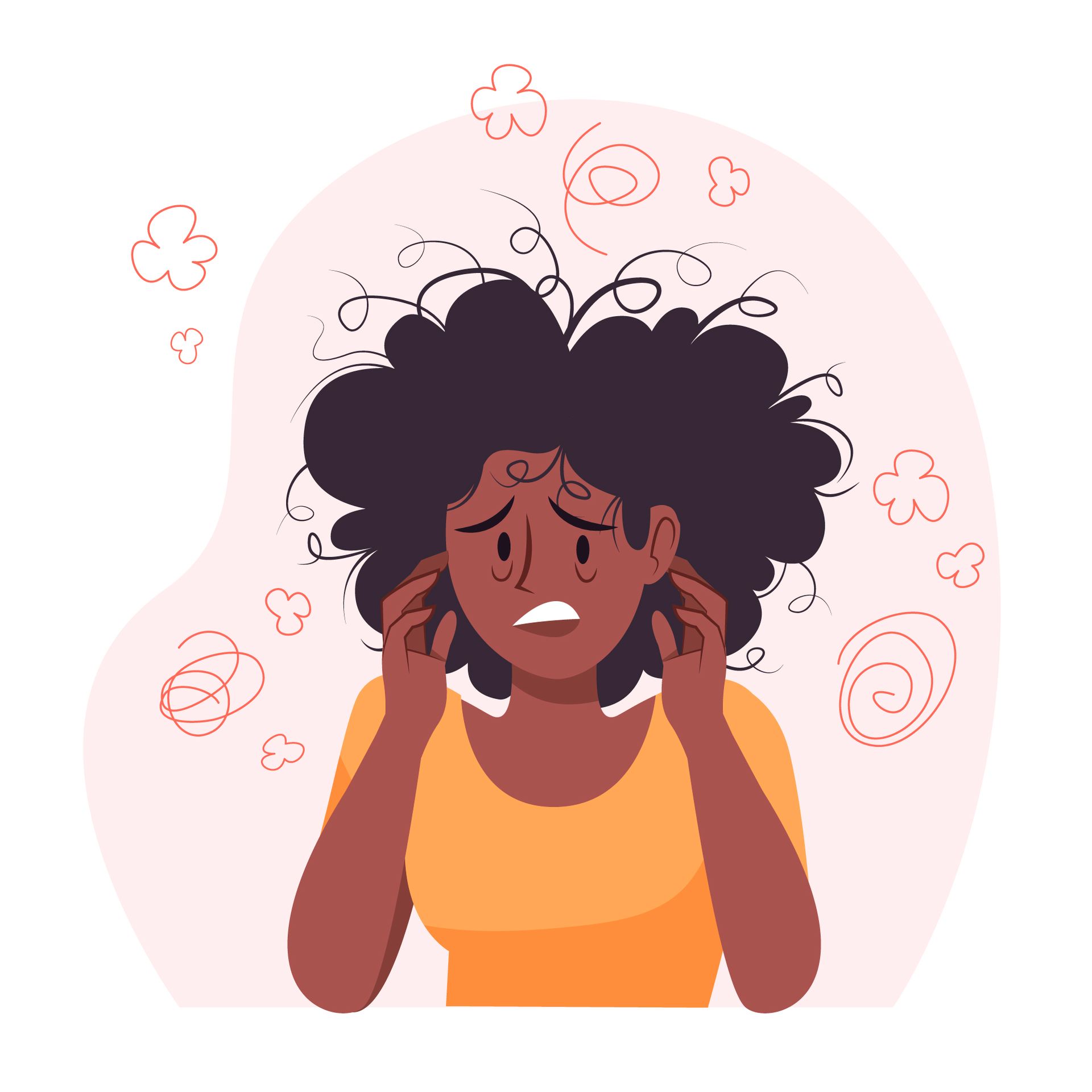You're Not Lazy: You May Be Living with Undiagnosed Trauma | Real Talk Therapy Corning NY

Introduction
You wake up exhausted. Simple tasks feel impossible. People tell you to "just try harder" or "stop being lazy." But what if you're not lazy at all? What if your brain and nervous system are working overtime to protect you from something you can't even name?
Maybe you've been carrying trauma for years without knowing it. Maybe your body is stuck in survival mode, making everyday life feel like an uphill battle. You're not broken, and you're not alone.
At Real Talk Therapy in Corning, NY, I understand how trauma can disguise itself as laziness. As someone who has walked this path myself, I know the relief that comes with finally understanding what's really happening in your mind and body.
Article Outline
- Why trauma gets mistaken for laziness
- Signs your nervous system might be stuck in survival mode
- What is complex PTSD and how it differs from PTSD
- Common experiences of trauma survivors
- How ADHD and trauma can overlap (AUDHD)
- Why your brain chooses freeze response over fight or flight
- Breaking the stigma around trauma and mental health
- Ways to cope when you're feeling overwhelmed
- When to seek help from a mental health professional
- How to practice self-compassion during healing
- Building a support system that understands trauma
- Moving from survival mode to healing
Why Trauma Gets Mistaken for Laziness
Trauma doesn't always look like what you see in movies. You don't need to have survived war or a major disaster to experience trauma. Sometimes trauma comes from childhood experiences that seemed "normal" at the time. Emotional neglect, criticism, or feeling unsafe can create lasting effects on your nervous system.
When you've experienced trauma, your brain becomes an expert at protecting you. But sometimes this protection looks like avoiding tasks, feeling tired all the time, or struggling to focus. People around you might say you're lazy, but your brain is actually working harder than ever to keep you safe.
The truth is, trauma can cause executive dysfunction that makes simple tasks feel impossible. Your brain might be using all its energy to scan for danger, leaving little left over for daily activities. This isn't laziness, it's your nervous system doing exactly what it was designed to do
Signs Your Nervous System Might Be Stuck in Survival Mode
Your body gives you signals when it's stuck in survival mode. You might feel tired even after sleeping, have trouble concentrating, or feel overwhelmed by small decisions. Maybe you find yourself avoiding social situations or struggling to complete projects you start.
Physical reactions can include headaches, stomach problems, or feeling jumpy when someone walks up behind you. You might have trouble sleeping or find yourself hypervigilant about potential threats. These aren't character flaws, they're signs that your nervous system is working overtime.
The freeze response is especially common and often gets labelled as laziness. When your brain perceives danger, it might choose to shut down rather than fight or flee. This can look like procrastination, lack of motivation, or feeling "stuck" in life.
What is Complex PTSD and How It Differs from PTSD
While PTSD typically develops after a single traumatic event, complex PTSD (C-PTSD or CPTSD) results from repeated or ongoing trauma, especially in childhood. The diagnostic and statistical manual of mental disorders doesn't officially recognize C-PTSD yet, but mental health professionals increasingly understand its unique effects.
People with complex PTSD often struggle with emotional regulation, negative self-image, and difficulties in relationships. Unlike traditional PTSD, which focuses on specific trauma memories, complex post-traumatic stress disorder affects your entire sense of self and how you relate to the world.
Complex trauma can make you feel like you're fundamentally different from others. You might internalize messages that you're "too much" or "not enough." These beliefs often develop as a way to cope with environments where your needs weren't met consistently.
Common Experiences of Trauma Survivors
If you're a trauma survivor, you might recognize some common experiences. Maybe you feel guilty for taking breaks or struggle to trust your own feelings. You might have emotional flashbacks where past feelings suddenly overwhelm you without warning.
Many trauma survivors become experts at reading other people's moods and adjusting their behavior accordingly. This hypervigilance can be exhausting and leave you feeling drained after social interactions. You might also struggle with boundaries, either being too rigid or too flexible.
Dissociation is another common experience. This might feel like watching your life from the outside or feeling disconnected from your body. Some people describe it as feeling like they're in a fog or watching a movie of their life rather than living it.
How ADHD and Trauma Can Overlap (
Many people discover they have both ADHD and trauma. Both conditions can cause executive dysfunction, trouble with focus, and feeling overwhelmed by daily tasks. This overlap can make it challenging to understand what's causing your struggles.
Trauma can actually cause ADHD-like symptoms even if you weren't born with ADHD. Your nervous system might become so focused on survival that it struggles to prioritize other tasks. This can look like the hyperfocus and distraction patterns common in ADHD.
If you're neurodivergent, you might have faced additional trauma from not fitting neurotypical expectations. Being told you're "too sensitive" or "not trying hard enough" can create shame that compounds existing trauma. Understanding both parts of your experience can be crucial for healing.
Why Your Brain Chooses Freeze Response Over Fight or Flight
The freeze response is your nervous system's way of protecting you when fight or flight isn't possible. This happens when your dorsal vagal complex activates, essentially putting your system into shutdown mode. You might feel numb, disconnected, or unable to take action.
This response often develops in childhood, when you couldn't escape difficult situations. Your brain learned that the safest option was to become very still and wait for danger to pass. As an adult, this same response can activate during stress, making you feel paralyzed or unmotivated.
The freeze response isn't weakness, it's actually a sophisticated survival strategy. Your vagus nerve is trying to protect you by conserving energy and reducing your visibility to threats. Understanding this can help you approach your struggles with more compassion.
Breaking the Stigma Around Trauma and Mental Health
Mental health stigma can prevent people from seeking help or understanding their experiences. In some cultures, mental health issues aren't discussed openly, leading people to suffer in silence. You might have learned that seeking help is a sign of weakness or that trauma "isn't real."
The truth is that trauma affects people from all backgrounds. It's not about being "strong enough" to handle life, it's about how your nervous system responds to overwhelming experiences. Seeking support is actually a sign of strength and self-awareness.
Social media platforms like TikTok and Reddit communities (subreddits) have helped reduce stigma by sharing real experiences of trauma and recovery. Seeing others share their stories can help you feel less alone and more willing to seek support.
Ways to Cope When You're Feeling Overwhelmed
When trauma symptoms feel overwhelming, having practical coping strategies can help. Start by focusing on your breathing and trying to activate your parasympathetic nervous system. Deep, slow breaths can signal to your body that you're safe.
Grounding techniques can help when you feel disconnected or having an emotional flashback. Try naming five things you can see, four things you can touch, three things you can hear, two things you can smell, and one thing you can taste. This helps bring you back to the present moment.
Movement can also help process trauma stored in your body. This doesn't have to be intense exercise - gentle stretching, walking, or even shaking your hands can help release stuck energy. Pay attention to sensory input that feels calming, like soft textures or soothing music.
When to Seek Help from a Mental Health Professional
If trauma symptoms are interfering with your daily life, it might be time to seek professional support. Signs include persistent sleep problems, difficulty maintaining relationships, substance use as a way to cope, or thoughts of self-harm. You don't have to wait until things get worse to ask for help.
A trauma-informed mental health professional can help you understand your experiences and develop healthy coping strategies. They can also help determine if you might benefit from an official diagnosis of PTSD, complex PTSD, or other mental health disorders.
At Real Talk Therapy, we understand that seeking help can feel scary, especially if you've had negative experiences with therapy before. We believe in creating a safe space where you can explore your experiences without judgment. Our approach is genuine and down-to-earth, recognizing that healing happens in relationships built on trust.
How to Practice Self-Compassion During Healing
Self-compassion is often one of the hardest skills for trauma survivors to learn. You might be used to being your own worst critic, especially if you grew up in an environment where you learned to internalize negative messages about yourself.
Start by noticing when you're being self-critical. Ask yourself: "Would I say this to a friend going through the same thing?" Often, we extend more kindness to others than we do to ourselves. You deserve compassion, especially during difficult times.
Remember that healing isn't linear. Some days will be harder than others, and that's completely normal. Let yourself feel whatever comes up without trying to fix it immediately. Sometimes the most healing thing you can do is simply acknowledge that something is hard.
Building a Support System That Understands Trauma
Having people who understand trauma can make a huge difference in your healing journey. This might include friends, family members, support groups, or online communities. Peer support from others who have walked similar paths can be especially valuable.
Look for people who don't try to "fix" you or minimize your experiences. Good support people listen without judgment and respect your boundaries. They understand that trauma affects everyone differently and don't pressure you to "get over it" on their timeline.
If your current support system doesn't understand trauma, that's okay. You can gradually educate them or seek additional support from people who do get it. Remember, you're not asking too much by wanting understanding and validation.
Moving from Survival Mode to Healing
Moving from survival mode to healing is a gradual process that happens in small steps. Start by recognizing that your responses to trauma make sense, they kept you safe when you needed protection. Now you're learning new ways to feel safe in the world.
Healing often involves learning to unlearn old patterns that no longer serve you. This might mean challenging negative beliefs about yourself, setting boundaries in relationships, or learning to trust your own instincts again. Be patient with yourself as you practice new ways of being.
Remember that you're not trying to "fix" yourself because you're not broken. You're simply helping your nervous system learn that it's safe to relax and that you can handle life's challenges without staying in constant protection mode.
Summary: Key Takeaways for Understanding Trauma vs. Laziness
• What looks like laziness might actually be trauma responses like freeze, executive dysfunction, or burnout
• Complex PTSD develops from repeated trauma and affects your entire sense of self, not just specific memories
• ADHD and trauma often overlap, creating similar symptoms around focus and motivation
• Your nervous system's protective responses make sense, they kept you safe during difficult times
• Breaking mental health stigma starts with understanding that trauma affects people from all backgrounds
• Practical coping strategies like grounding techniques and breathwork can help during overwhelming moments
• Professional support can provide valuable tools and validation for your healing journey
Ready to Start Your Healing Journey?
You don't have to figure this out alone. If you're ready to understand your experiences and develop healthier ways of coping, Real Talk Therapy is here to support you.
I'm Natali Gonzalez, and I understand firsthand how trauma can be mistaken for personal failings. Our practice in Corning, NY, specializes in helping people work through trauma, ADHD, and the complex ways they intersect. We believe in meeting you exactly where you are with genuine compassion and real understanding.
Schedule your first appointment today and take the first step toward understanding your story with more clarity and self-compassion.
Important Disclaimer
This blog post is for educational purposes only and is not intended to diagnose, treat, cure, or prevent any medical or mental health condition. The information provided should not be used as a substitute for professional medical advice, diagnosis, or treatment.
If you are experiencing thoughts of self-harm, suicidal ideation, or are in crisis, please seek immediate help by calling 988 (Suicide & Crisis Lifeline), going to your nearest emergency room, or contacting emergency services.
Always consult with a qualified mental health professional before making any decisions about your mental health care. Individual experiences with trauma and PTSD vary greatly, and what works for one person may not work for another.
Real Talk Therapy provides this information to help educate and support individuals, but this content does not establish a therapist-client relationship. For personalized care and treatment recommendations, please schedule a consultation with a licensed mental health provider.
SHARE THIS POST:
I'm Natali Gonzalez, LCSW
Founder of Real Talk Therapy
Lorem ipsum dolor sit amet, consectetur adipiscing elit, sed do eiusmod tempor incididunt ut labore et dolore magna aliqua. Ut enim ad minim veniam, quis nostrud exercitation ullamco laboris nisi ut aliquip ex ea commodo consequat.
Our Recent Post:
Reclaim Your Peace of Mind
Book your free consultation now and discover the support you deserve.





